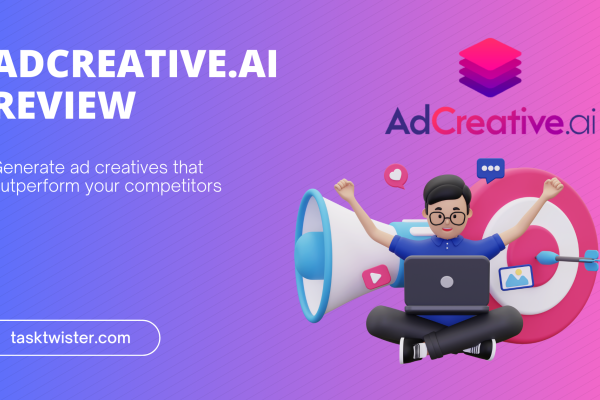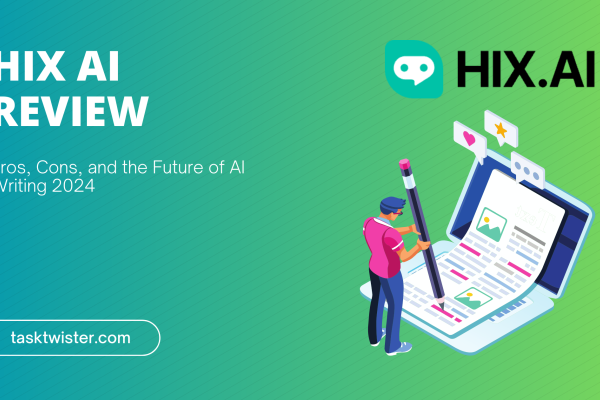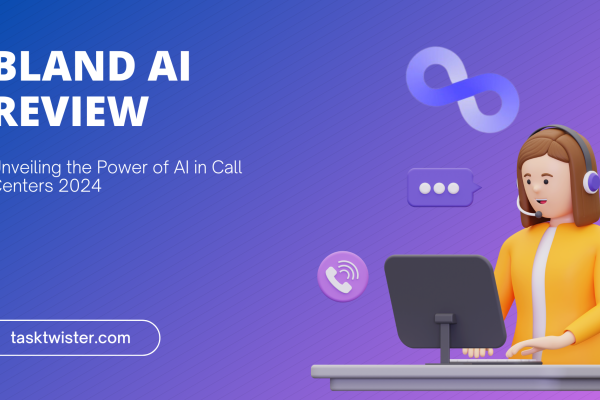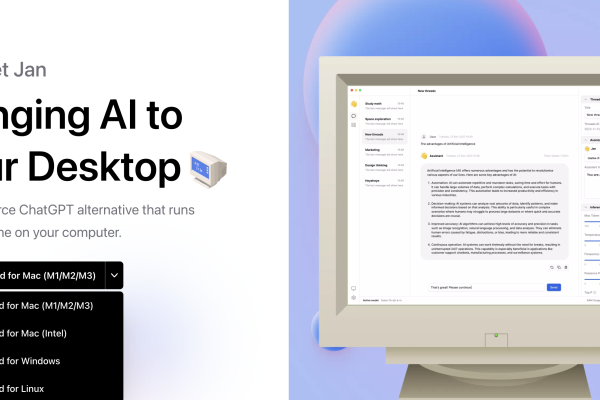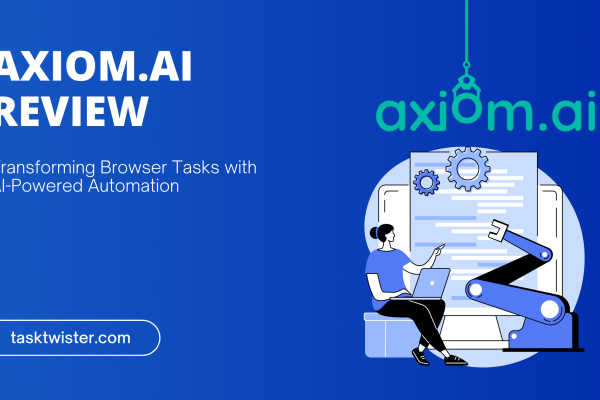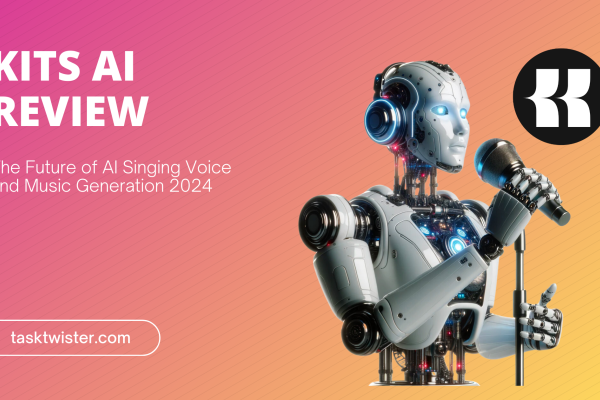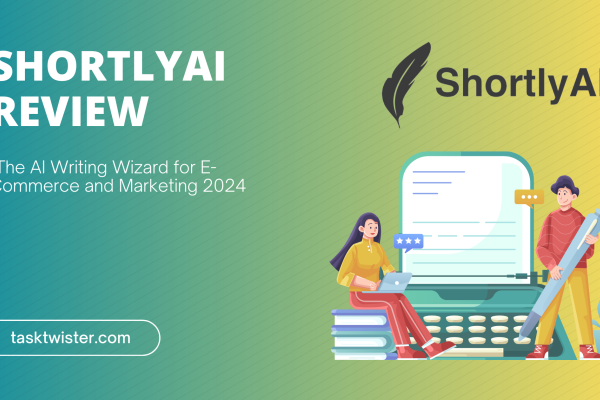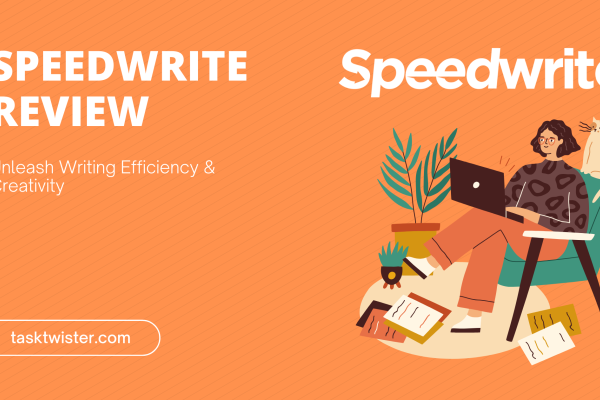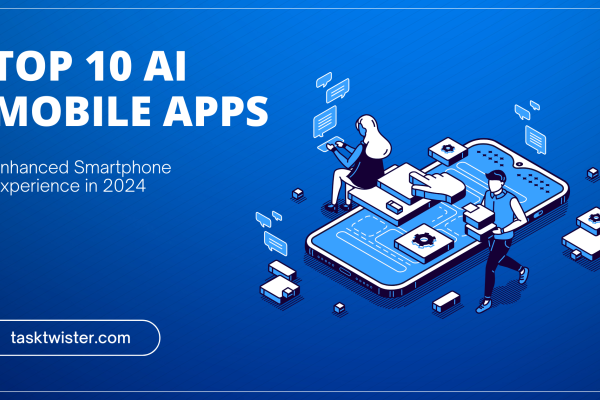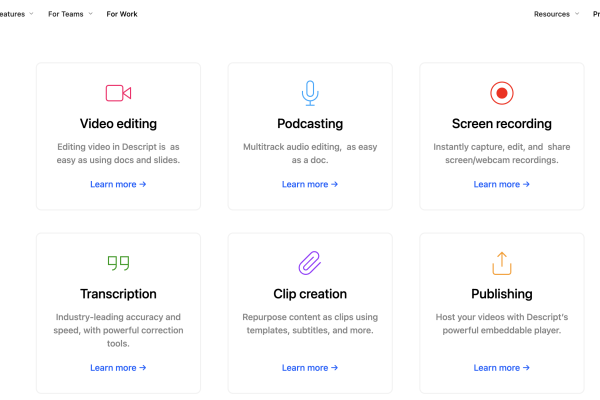The best way to level up customer services by AI 2023
William
AI has been ingrained in popular culture for generations, exemplified by iconic movies like “The Terminator.” However, recent advancements in technology, such as ChatGPT and AI-powered bots, have sparked a renewed conversation about AI’s role in the business world. Both company leaders and consumers now have a better understanding of the benefits of AI in customer service and its potential to simplify our lives.
- Trend 2023-Sonix AI: A Comprehensive Pros and Cons Review
- Vidyo AI Review 2024: Revolutionizing Video Editing for Content Creators
- Kits AI Review: The Future of AI Singing Voice and Music Generation 2024
- SoulGen AI Review: Unleash Creativity with Text-Prompted Art
- Top 10 AI Writing Tools 2023: Revolutionizing Content Creation
Table of Contents

AI’s Potential to Enhance Customer Service There are several ways in which AI can revolutionize the customer experience as technology continues to evolve. Here are a few examples of how you can implement AI in your customer service strategy:
You are viewing: The best way to level up customer services by AI 2023
1. Enhance Efficiency and Productivity for Customer Service Agents
AI can provide tools and automation to streamline workflows, leading to increased productivity among support agents. By utilizing chatbots, businesses can handle simple customer requests, while automation takes care of repetitive tasks. This allows your team to focus on more complex customer issues and high-value tasks.
Moreover, AI can analyze customer interactions, understand their sentiments and intentions, and accurately route tickets to the appropriate agent if necessary. By considering the customer’s sentiment, an agent can approach the interaction in a way that avoids escalations or de-escalates tense situations.
According to a survey, 71 percent of consumers believe that AI should be capable of understanding and responding to their emotions during customer service interactions. For example, Zendesk offers AI-powered productivity tools that enhance agent performance, such as advanced bots that can greet customers on your website or messaging channels and provide tailored responses to industry-specific inquiries.
2. Proactively Make Recommendations to Customers
AI-powered bots can make personalized recommendations based on a customer’s preferences, previous interactions, and website behavior. Proactive engagement is cited as one of the most effective uses for AI-powered chatbots, according to Lauren Hakim, a product marketer at Zendesk.
For instance, AI can help prevent customers from abandoning their shopping carts by addressing inquiries about products, shipping costs, or the checkout process. By automating workflows, AI-powered chatbots can offer discounts, send reminders to customers to complete their purchases, or proactively address any questions they may have.
3. Offer 24/7 Customer Support Implementing
Implementing AI-powered chatbots enables businesses to provide convenient, round-the-clock customer support. Customers can connect with your business at any time, even outside of traditional support hours, and receive real-time assistance.
Chatbots like Zendesk bots are available 24/7 and can answer general questions or provide self-service resources, such as help center articles, for customers to find immediate answers or complete simple tasks. This is especially crucial as businesses expand into global markets, ensuring an excellent customer experience regardless of time zones.
To illustrate, Photobucket employs Zendesk bots that answer frequently asked questions and hand off conversations to live agents when necessary. Since implementing this solution, Photobucket has achieved notable improvements, including a 17 percent decrease in first resolution time, a 14 percent decrease in first reply time, and a three percent increase in customer satisfaction.
4. Deliver personalized support
AI can deliver highly personalized support. This includes offering assistance based on a customer’s past behaviors or inquiries, keeping customers informed about relevant products and services based on their purchase history, sending targeted discounts, and providing support in their preferred language.
See more : A complete guide to Zendesk: What is Zendesk, and how does Zendesk function?
Recognizing the value of personalized recommendations, 60 percent of consumers are receptive to them. For example, AI can automate a message that wishes a customer a happy birthday and includes a personalized discount code. This message can be sent via the customer’s preferred messaging channel, addressing the customer by their preferred pronouns and recommending products based on their previous purchases.
5. Gathering Consumer Insights
Gathering Consumer Insights Utilizing AI in customer service empowers your team to gather valuable consumer insights. With tools like Zendesk, agents have access to AI-powered insights that provide information about customer intent, language, and sentiment. This knowledge helps agents approach interactions more effectively, as all relevant data is stored in a unified workspace, eliminating the need to toggle between applications.
During customer interactions, AI guides agents by suggesting the most relevant responses based on customer insights and context. Agents can further automate their replies, saving time and reducing manual tasks, particularly during periods of high customer engagement.
For instance, if a customer’s order goes missing, AI can prompt agents with suggestions for a refund or replacement.
6. Creating Powerful Intelligent Workflows
Creating Powerful Intelligent Workflows Intelligent workflows created through AI can improve the overall customer experience by allowing for faster support and efficient agent allocation. With Zendesk, support teams can leverage AI to route customer requests to the most suitable agent based on customer intent, sentiment, language, agent capacity, status, and skillset.
Consider a scenario where a customer is upset about being charged a different price for a service add-on. AI understands the customer’s angry tone and the fact that they speak Spanish, capturing account and billing information. It then identifies an available senior-level agent who can address billing discrepancies and speak Spanish, facilitating a seamless handoff with customer context.
7. Offering Multilingual Customer Service
Offering Multilingual Support Conversational AI technology, equipped with natural language understanding (NLU), can detect a customer’s native language and automatically translate the conversation. This enhances multilingual support capabilities and ensures a more convenient and efficient customer experience, as immediate translation eliminates the need for human translators.
Integrating multilingual support automation software into your customer service solution enables AI to access customer information and personalize conversations based on data such as location, device used, buying preferences, and conversation history.
For example, a bot can automatically detect a customer’s language based on their location and the text in the chat window.

8. Assisting with Agent Onboarding and Training
Assisting with Agent Onboarding and Training Using AI-powered virtual assistants, such as those offered by Zendesk, can greatly facilitate agent onboarding and training. These virtual assistants provide support to every customer services agent, gradually increasing the complexity of requests they handle through intelligent routing and suggesting appropriate actions to take in different scenarios.
By automating various aspects of onboarding and training, businesses can refine their CS and improve the level of support offered. For instance, Rhythm Energy, a Zendesk user, was amazed by the ease of training agents using the platform and its automation capabilities. This led to immediate assistance for customers, even from agents who were just starting their CS journey.
9. Saving Agents’ Time with Automated Intent
Saving Agents’ Time with Automated Intent Identification Advanced bots equipped with pre-trained customer intent models can automatically identify and address common customer issues based on previous CS data. By classifying requests, such as password resets or billing issues, agents can receive personalized and accurate responses. These bots can also share the identified intents with agents, providing contextual information to enhance the support experience.
See more : Axiom.ai Review: Transforming Browser Tasks with AI-Powered Automation
Deploying advanced bots on messaging and email channels can deflect common customer questions and handle repetitive tasks, allowing agents to focus on more complex inquiries that require a human touch. Implementing advanced bots is a quick and simple process, minimizing the time spent on manual configuration.
Consider a scenario where a customer sends an Instagram DM stating that their order was never delivered. An advanced bot automatically comprehends the customer’s intent, responding by offering a replacement or refund.

The benefits of using AI for Customer Service
Benefits of AI for CS Utilizing AI in customer services brings numerous benefits for businesses. According to our CX Trends Report, 72 percent of business leaders view expanding their use of AI and bots throughout the customer experience as a crucial priority for the next year. As businesses invest in customer services AI, several advantages become apparent. Here are some key benefits:
- Cost Reduction: AI tools like chatbots, intelligent triage, and workflow automation allow customer care teams to handle larger ticket volumes without requiring additional personnel. AI acts as a supplement for agents, enhancing efficiency and productivity, which translates into cost savings.
- Efficient and Speedy Support: AI enables businesses to provide instant support without agent involvement. In situations where customer handoff is necessary, AI equips agents with crucial information and customer context, providing insights and suggested actions for quick problem resolution.
- Increased Customer Satisfaction and Retention: Our CX Trends Report shows that businesses utilizing Zendesk bots witnessed a two percentage point increase in customer satisfaction year over year. Offering fast, convenient, and consistent service is pivotal to cultivating loyal customers who stay with your brand.
- Alleviating Agent Burnout: AI automates mundane tasks, resulting in reduced workload for support teams. When agents are able to focus their energies on tasks that match their skill sets, job satisfaction increases.
Examples of AI and automation in Customer Service
Examples of AI and Automation in Customer Support AI and automation play integral roles in customer support. Examples include chatbots, natural language processing (NLP), face and voice recognition, interactive voice response (IVR), and intelligent virtual assistants (IVAs). AI technology is constantly evolving and improving, providing businesses with new and innovative tools to enhance customer experience. Here are some examples:
- Chatbots: Conversational AI that understands and automates responses to customer inquiries in a friendly manner.
- Natural Language Processing (NLP): Machine learning technology capable of understanding and responding to voice commands and translating text.
- Face and Voice Recognition: Biometric AI uses algorithms and mathematics to authenticate individuals based on distinguishing facial features and voices.
- Interactive Voice Response (IVR): Automated phone system tool that answers calls, comprehends vocal responses, and provides options for subsequent actions, such as routing calls to the appropriate agent or department.
- Intelligent Virtual Assistant (IVA): AI program that understands voice commands and performs tasks on behalf of customer support agents.
What are the challenges of AI in Customer Service?
Challenges of AI in Customer Services Just like any emerging technology, implementing AI in the workplace comes with unique challenges. It’s essential to consider these challenges and seek solutions within the AI software you choose. Some notable obstacles include:
- Selecting the right AI solution for your customer service needs.
- Ensuring data protection and privacy standards are met.
- Adapting to changes in customer behavior and preferences.
- Integrating AI tools seamlessly into existing workflows.
- Overcoming resistance to change among employees.
Embracing AI as a Strategic Decision Welcome to the future of AI in customer services! Embracing AI to enhance customer happiness, and employee experience, and streamline support should be a logical decision for your business. Investing in AI to improve customer services has countless advantages, and the technology will undoubtedly shape the future of customer support.
Top AI tools for customer service
Providing excellent customer service is essential for any organization to succeed in today’s competitive market. However, delivering exceptional customer service can be time-consuming and requires a lot of resources. This is where AI-powered tools come in handy. AI tools are equipped with distinct capabilities designed to tackle the difficulties that may arise in delivering customer service. They can automate many tasks and processes, allowing your customer service team to focus on more complex and nuanced tasks that require human intelligence.
By popular tools, you can make a knowledgeable decision about which AI tool will best align with your customer service goals. Here are a few customer service software platforms that provide AI functionality to assist you in navigating through your choices:
- Help Scout
Help Scout’s AI-powered tools can help you provide personalized customer service at scale. Their AI-powered chatbot, Beacon, can answer common customer questions and collect information to help your customer service team solve more complex issues - Freshdesk
Freshdesk offers a range of AI-powered tools that can help you streamline your customer service operations. Their AI-powered chatbot, Freddy, can handle customer queries, while their AI-powered analytics tool, Freshdesk Omniroute, can help you optimize your team’s workload - Salesforce
Salesforce’s AI-powered tool, Einstein, can help you automate routine tasks and provide personalized recommendations to customers. It can also analyze customer data to identify trends and patterns, allowing you to make data-driven decisions that can improve your customer service - Zendesk
Zendesk offers a range of AI-powered tools that can help you with everything from automating routine tasks to providing personalized customer experiences. Their AI-powered chatbot, Answer Bot, can answer common customer questions in real-time, freeing up your customer service team to handle more complex issues.
In today’s fast-paced world, keeping up with customer queries can be a daunting task for any business. However, AI-powered tools have transformed the way customer support is handled, making it much easier, faster and more efficient. These tools are designed to handle all kinds of queries, from simple to complex, without breaking a sweat. This not only saves time and improves productivity, but also leads to higher levels of customer satisfaction.
The rapid advancement of AI technology, we can expect to see even more innovative ways to use this technology to improve customer support. This not only saves time but also frees up human support staff to focus on more complex issues
Latest Articles
Most views
Related Articles
Source: http://tasktwister.com
Category: AI Business & Admin








